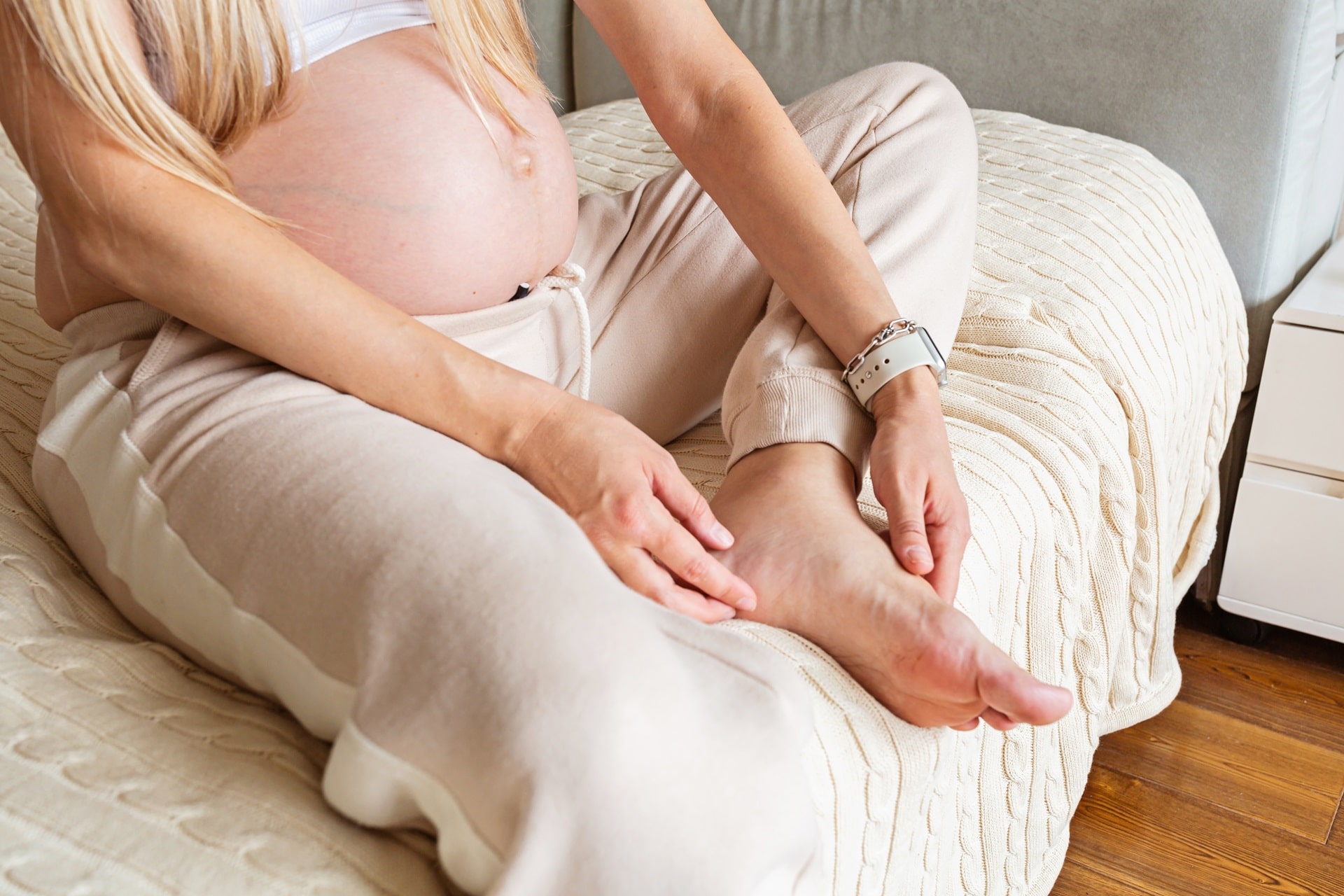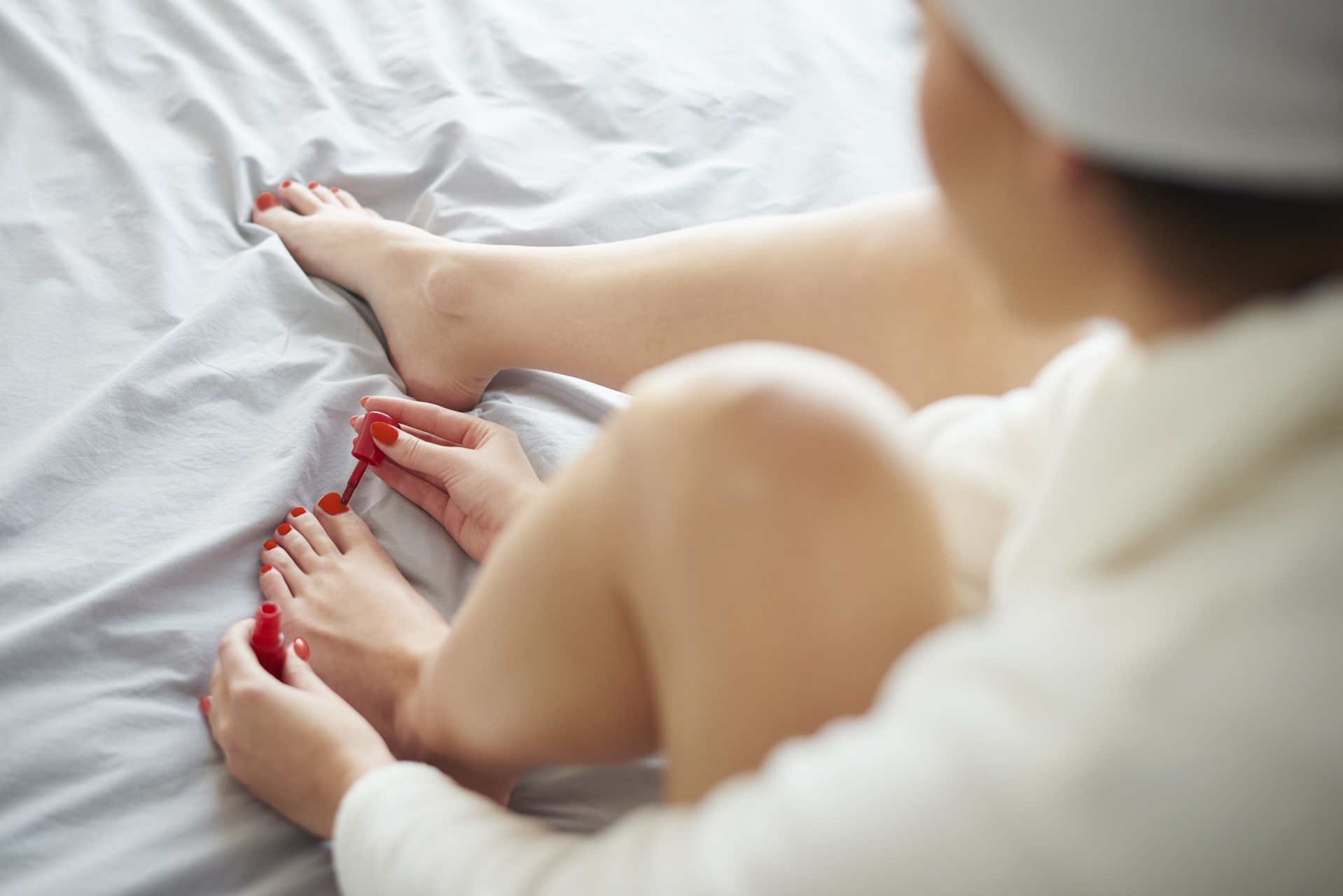Many changes occur in the body of pregnant women during this period. The changes that occur are not limited to the body, but some changes also occur in the feet due to the increase in body weight. The arch of the foot may flatten during this period, the arch of the foot may flatten. Due to flattening, pain in the foot increases and ingrown toenails may occur.
In the later months of pregnancy, swelling in the ankle and around the foot may become much more pronounced. Hormonal changes in the body during pregnancy cause more water retention in the body. This is normal and expected. The increased fluid helps to transport the nutrients that the expectant mother receives to the fetus. But this can stress the expectant mother.
Due to the effect of gravity, this can cause swelling of the feet and legs. Many women cannot even wear shoes during pregnancy. Expectant mothers who cannot wear shoes may prefer to wear slippers, but in this case, as the foot grows, cracks may occur in the heel of the foot that goes out of the slipper.
How are problems solved?
Care can be taken in foot health departments for calluses on the feet and cracks in the heels.
The right shoes should be preferred to avoid problems with the feet during pregnancy.

Choosing the right shoes during pregnancy
Choosing the right shoes during pregnancy will greatly prevent deformities that will occur in the feet. By choosing the right shoes, it is possible to prevent the formation of ingrowns, calluses and cracks. Pay attention to these when buying shoes during pregnancy:
- Prefer the later hours of the day for your shoe shopping. Because when you wake up, you will wake up rested and your feet will rest. Feet expand with the fatigue of the day. For this reason, you should choose a shoe suitable for the most swollen state of your feet.
- When choosing shoes, you should choose shoes that support the sole of the foot and make it easier for you to walk, and you should stay away from high-soled and heeled shoes. Walking and running shoes with wide toes can be preferred during pregnancy.
- When choosing shoes, you should pay attention to how they grip your foot. The shoe should wrap your foot but not squeeze it. The shoe size you normally wear will change and increase during pregnancy. You should choose the shoes that you will be most comfortable without caring about this situation.
What should pregnant women pay attention to when having foot care?
Expectant mothers cannot use medication too often and in large quantities during pregnancy. For this reason, they should be protected from infection and diseases as much as possible. Therefore, foot care centers that use sterile instruments that care about hygiene should be carefully selected. In cases where sufficient care is not taken, many diseases can be transmitted to the expectant mother during foot care.

How often should pregnant women have foot care?
In general, weight gain and edema begin to cause swelling in the feet in pregnant women as of the 12th week. From the 12th week, foot care can be done once a month.
Why do you get calluses on your feet when you are pregnant?
The feet grow with the edema that occurs in the feet as a result of the weight gained during pregnancy, hormonal changes and increase in blood pressure and water retention in the body, but calluses are formed as a result of continuing to wear shoes with small sizes available to growing feet. It is not recommended to use callus bands during this period.
Ingrown nail treatment during pregnancy
Tape or wire method can be used in the treatment of ingrown nails in pregnant women. This should be decided by your physician.
What should pregnant women pay attention to for foot health?
As mentioned above, the most important point is choosing the right shoes. In addition, pregnant women should not stand for a long time. Standing should not be fixed. Feet should be lifted up and rested at every opportunity. Also, traveling while sitting for a long time should be avoided.
Can pregnant women do foot care at home?
Feet should be moisturized frequently to prevent callus formation during pregnancy. For this, oily and dense creams such as Vaseline can be preferred. When making this choice, you should definitely consult your physician and provide information.
You may be interested in: The importance of oral care and dental health during pregnancy









